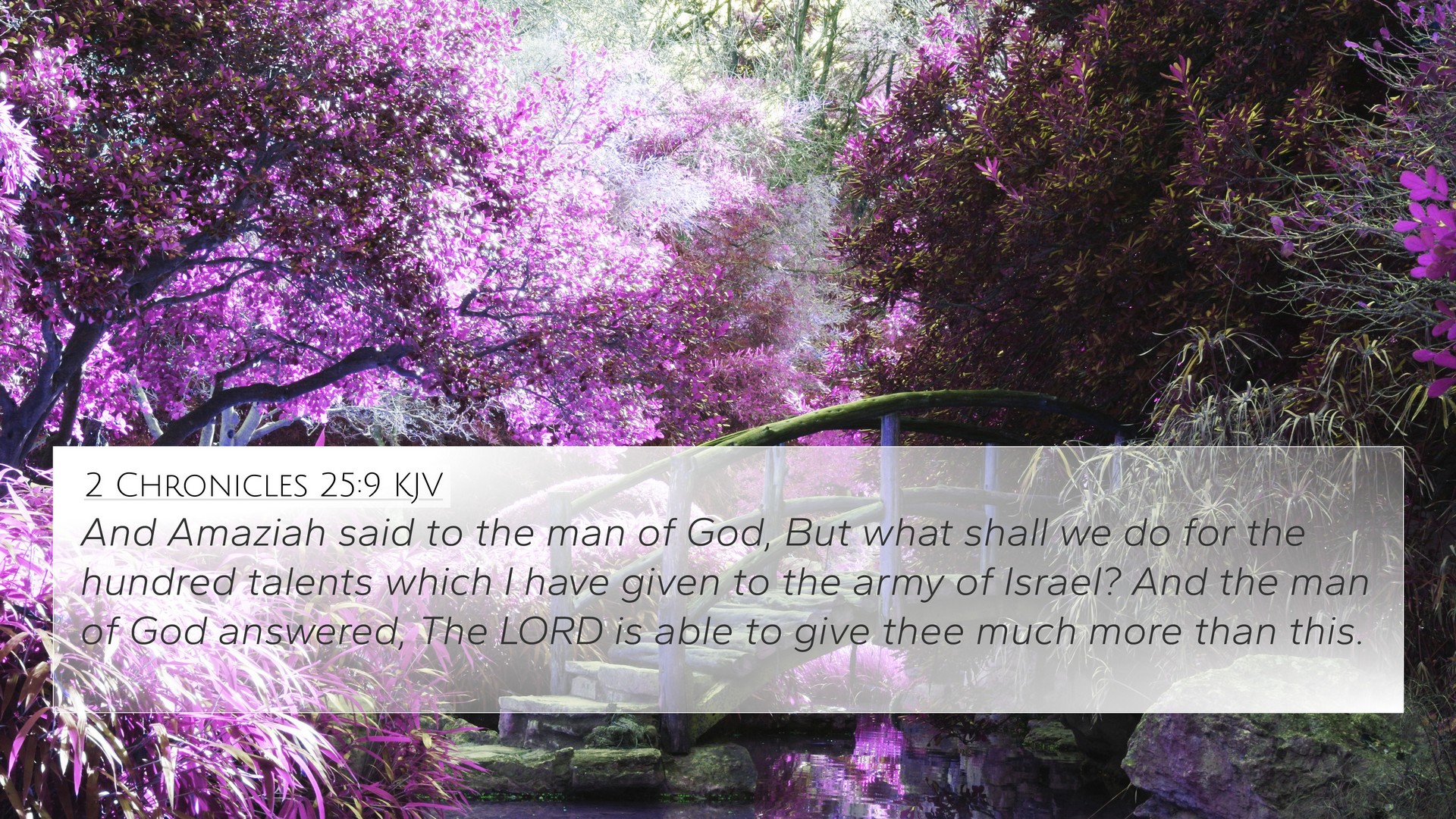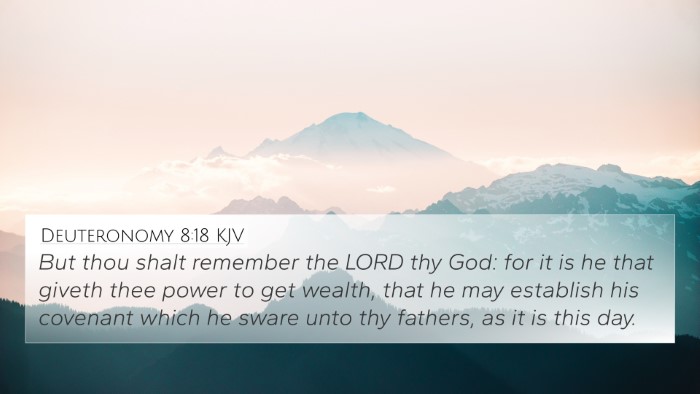Understanding 2 Chronicles 25:9
2 Chronicles 25:9 states: "And Amaziah said to the man of God, But what shall we do for the hundred talents which I have given to the army of Israel? And the man of God answered, The Lord is able to give thee much more than this." This verse comes from the narrative of King Amaziah of Judah, who is faced with a dilemma regarding a military decision and its financial implications. Here, we will explore the meaning of this verse by combining insights from public domain commentaries.
Commentary Insights
In this passage, Amaziah had hired mercenaries from Israel but was subsequently advised against this decision by a man of God. Below are key interpretations:
- Matthew Henry's Commentary: Matthew Henry emphasizes that God’s providence supersedes human plans. He notes that even though Amaziah had already invested financially in the army, God's power and provision are limitless. Henry encourages believers to trust God's ability to provide beyond their immediate understanding.
- Albert Barnes' Notes on the Bible: Barnes focuses on the importance of divine guidance in earthly matters. He interprets the man of God's reassurance as a reminder of God's sovereignty, indicating that spiritual decisions should take precedence over financial anxiety. Barnes highlights the need for obedience to God's word despite worldly pressures.
- Adam Clarke's Commentary: Clarke discusses the notion of faith in God's provision. He comments on Amaziah's concern about what he had already given, stressing that the promise of God’s increased blessings surpasses earthly losses. Clarke implies that faith entails acting in trust, even when the cost seems high.
Key Themes and Lessons
This verse encapsulates several profound themes relevant to our spiritual journeys:
- The Priority of Divine Guidance: Recognizing that spiritual wisdom should inform our decisions in every aspect of life.
- Faith Over Finances: Understanding that trust in God can lead to blessings that far exceed our material investments.
- God’s Provision: Knowing that God can provide abundantly, even when we are faced with losses or sacrifices.
Bible Cross References
To deepen our understanding of 2 Chronicles 25:9, the following Bible cross-references illustrate similar themes of divine provision and guidance:
- Philippians 4:19: "But my God shall supply all your need according to his riches in glory by Christ Jesus."
- Matthew 6:33: "But seek ye first the kingdom of God, and his righteousness; and all these things shall be added unto you."
- Psalm 37:25: "I have been young, and now am old; yet have I not seen the righteous forsaken, nor his seed begging bread."
- Luke 12:24: "Consider the ravens: for they neither sow nor reap; which neither have storehouse nor barn; and God feedeth them: how much more are ye better than the fowls?"
- Isaiah 55:2: "Wherefore do ye spend money for that which is not bread? and your labour for that which satisfieth not?"
- 2 Corinthians 9:8: "And God is able to make all grace abound toward you; that ye, always having all sufficiency in all things, may abound to every good work."
- James 1:17: "Every good gift and every perfect gift is from above, and cometh down from the Father of lights, with whom is no variableness, neither shadow of turning."
Connecting Themes through Cross-Referencing
When we examine these scriptures in relation to 2 Chronicles 25:9, we observe the following rich connections:
- Spiritual Provision: The promise of God's provision seen in Philippians and 2 Corinthians echoes Amaziah's situation, highlighting that God can meet all needs.
- The Value of Seeking God: Matthew 6:33 reinforces the idea that prioritizing divine righteousness leads to fulfillment of all other needs, aligning closely with the message in Chronicles.
- Trust in God's Care: Psalm 37:25 and Luke 12:24 both emphasize God's faithfulness in providing for those who trust Him, paralleling the reassurance given to Amaziah.
Conclusion
2 Chronicles 25:9 serves as a reminder of the necessity to seek God's wisdom amid financial and personal challenges. As believers, we should embrace the understanding that God's provisions are abundant and trustworthy. When we cross-reference this verse with others, we discover a tapestry of reassurance about God’s capacity to provide, encouraging us to flourish in faith.
Further Study
Utilizing tools for Bible cross-referencing, such as a Bible concordance or a cross-reference Bible study guide, can enrich our understanding of the interconnections between these scriptures. Consider exploring how links between Old and New Testament verses can deepen your spiritual insight and enhance your study practices.




